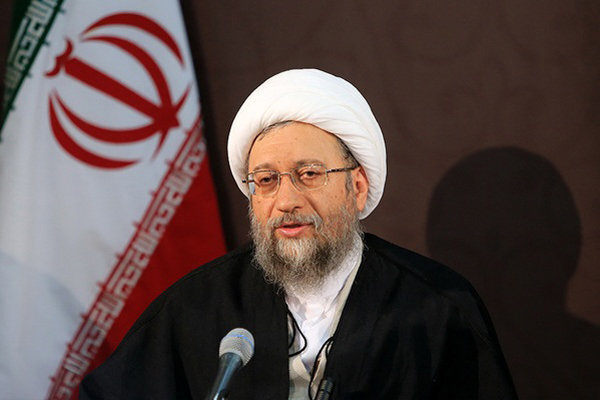Palermo and CFT are extremely dangerous, says Expediency Council chief Amoli Larijani

TEHRAN — Chairman of the Expediency Council Ayatollah Sadeq Amoli Larijani has said accession to Palermo Convention and Combating the Financing of Terrorism (CFT) is extremely dangerous for Iran’s national security.
“If you ask my personal opinion, Palermo and CFT are extremely detrimental to national security,” Amoli Larijani said on Wednesday, adding, “Especially the CFT which is very dangerous.”
He said Iran has grown more suspicious of the Americans and their servants and the countries that are members of the Financial Action Task Force (FATF) over time.
“This is clear. I want to say that they are really dangerous individuals. They are corrupt individuals. Of course, they were already corrupt and dangerous. Their Barjam (Iran nuclear deal) showed how cheap of individuals they are and the CFT is worse than Barjam,” said Amoli Larijani, according to Mehr.
Ratifying the FATF-related bills has become a contentious issue in Iran.
Mohsen Rezaee, secretary of the Expediency Council, said on Wednesday that politicizing the issue of FATF and exerting pressure on the council to approve it are “suspicious”. Rezaee said the issue is being discussed by the opponents and proponents in the council.
The parliament passed the FATF in October 2018. However, the oversight Guardian Council rejected the bill.
Whenever there is a dispute between the parliament and the Guardian Council on a bill, it will be referred to the Expediency Council for final decision. Now it is up to the Expediency Council to reject or ratify the FATF.
The Paris-based task force said on October 18 that it has given Iran a final deadline of February 2020 to tighten its laws against money laundering in compliance with the global watchdog’s financial standards.
“If before February 2020, Iran does not enact the Palermo and Terrorist Financing Conventions in line with the FATF Standards, then the FATF will fully lift the suspension of counter-measures and call on its members and urge all jurisdictions to apply effective counter-measures, in line with recommendation 19,” the FATF said in a statement, Reuters reported.
One of the actions Iran is required to take to appease the FATF is to ratify the CFT.
The government is pushing for the approval of the FATF, but some figures argue that such act could not resolve any problems, including the sanctions that the United States imposed on Iran after it withdrew from the 2015 nuclear agreement.
U.S. President Donald Trump has adopted a maximum pressure policy against Iran since he walked away from the nuclear deal, also known as the JCPOA. The policy includes sanctions on Iran’s economy, especially its oil exports, and bans on top Iranian figures and organizations.
MH/PA
Leave a Comment